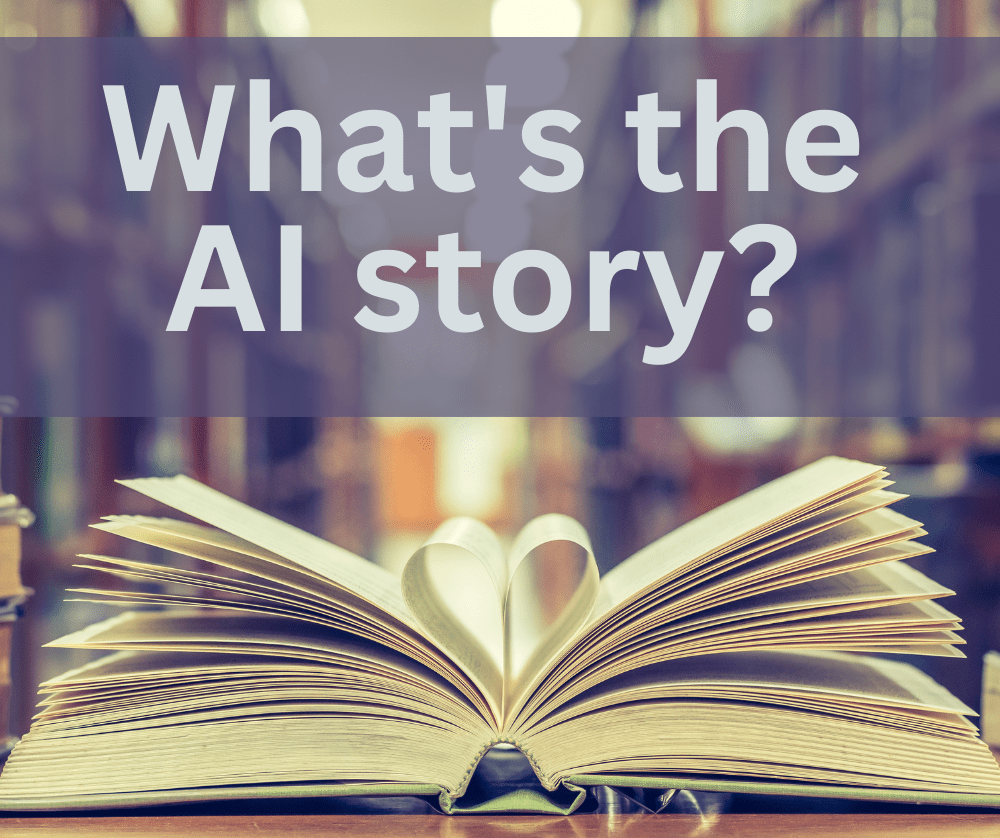We admit it: we’re as curious about artificial intelligence (AI) as you are. We’ve fed more than our share of prompts into tools like ChatGPT, Imagine.ai and Looka, scrutinized the results with a professional eye, and brainstormed ways to incorporate this tech into our work.
Some folks think these tools are going to replace the need for marketers in the future. They argue that if code and algorithms can generate content and determine the best ways to deploy it for maximum impact, there’s no need for a human touch.
They may be right… To a point.
AI can certainly whip up snappy ad copy and an eye-catching visual for your next ad campaign, but we’re not convinced that’s enough to put us human marketers out of work. Because when marketing is done well, it tells a compelling story and that’s something AI simply can’t do – according to AI itself.
We asked ChatGPT to explain why AI will never fully replace a human storyteller. Here’s what it had to say:
AI will never fully replace a human storyteller for several reasons:
- Creativity and originality: Storytelling requires creativity and originality, which are complex human traits. While AI can generate text and narratives based on patterns and data, it lacks the ability to truly create something new and innovative. Human storytellers can draw from personal experiences, emotions, and imagination to craft unique stories that resonate with audiences.
- Emotional connection: Human storytelling often involves establishing an emotional connection with the audience. Through voice inflections, gestures, and personal charisma, storytellers can evoke emotions and captivate listeners in ways that AI cannot. Human storytellers can adapt their performance based on the audience’s reactions and engage in real-time interaction, making the experience more personal and immersive.
- Contextual understanding: Storytelling requires a deep understanding of cultural, historical, and social contexts. While AI can analyze vast amounts of data, it often lacks the contextual understanding that humans possess. Human storytellers can incorporate nuanced cultural references, adapt their storytelling style to different audiences, and navigate sensitive topics appropriately, which is challenging for AI.
- Intuition and empathy: Effective storytelling involves intuitively gauging the emotional needs and reactions of the audience. Human storytellers can adjust their narrative, tone, and pacing based on the subtle cues they perceive from the listeners. They can empathize with the audience and create stories that resonate with their emotions, experiences, and aspirations. AI lacks this intuitive understanding and emotional empathy.
- Adaptability and improvisation: Storytelling is a dynamic and interactive process. Human storytellers can adapt their stories on the fly, respond to questions, and incorporate audience participation. They can read the room, change the narrative if necessary, and create a unique experience for each audience. AI, on the other hand, follows pre-programmed algorithms and lacks the spontaneity and adaptability of a human storyteller.
While AI can be a valuable tool to assist human storytellers and provide inspiration, it is unlikely to replace them completely. Human storytelling encompasses a rich tapestry of emotions, experiences, and cultural nuances that make it a deeply human and irreplaceable art form.
And there you have it: even AI believes you should make sure you’re not just telling your story, but telling it well.

